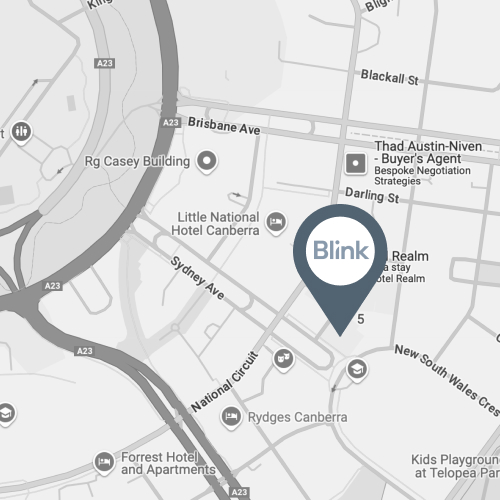
Is laser eye surgery safe?
If you're thinking about laser eye surgery, it's natural to ask: Is it safe?
At Blink Vision Clinic in Canberra, we understand that safety is your number one concern. It’s ours too. Laser eye surgery has helped many people reduce their need for glasses or contact lenses. But like any medical procedure, it's important to understand the benefits and the risks.
Here’s what you need to know.
What is laser eye surgery?
Laser eye surgery uses a specialised laser to reshape the clear front part of your eye, called the cornea. This helps light focus properly onto your retina and can reduce dependence on glasses or contact lenses.
At Blink Vision Clinic, we offer:
- LASIK – A commonly performed procedure where a flap is made in the cornea before the laser reshaping.
- TransPRK – A ‘no touch’ surface treatment that doesn’t require a corneal flap.
- PresbyMAX – A blended vision approach for people over 45 who need help seeing both near and far.
Each procedure has specific indications and suitability requirements. You’ll need a full assessment to determine what’s right for your eyes.
Is it safe?
Laser eye surgery is considered a safe procedure when performed on suitable candidates by experienced professionals using high-quality equipment.
Worldwide, millions of laser eye procedures are performed each year. Most patients experience improved vision without serious complications1https://www.lasereyesurgeryhub.co.uk/laser-eye-surgery/safety-2/. However, no medical procedure is risk-free.
Possible risks may include:
- Dry eyes
- Glare or halos at night
- Under- or over-correction
- Infection (rare but possible)
- Need for additional treatment later on
These risks are discussed with you in detail before any procedure. At Blink Vision Clinic, our team follows strict safety protocols, and we only recommend surgery if we believe it’s clinically appropriate.
How do we reduce the risks?
We focus on careful screening and planning.
- We perform a detailed eye assessment using advanced imaging.
- We check your prescription history to ensure it’s stable.
- We screen for other eye conditions that may affect your outcome.
If your eyes aren’t suitable for laser eye surgery, we’ll tell you—honestly. Safety always comes first.
What’s recovery like?
Most people recover quickly. For LASIK, some see better the very next day. TransPRK recovery takes a bit longer, usually several days to a week2https://www.healthline.com/health/eye-health/prk-vs-lasik#efficacy.
We provide a full aftercare plan and clear instructions. We also check your healing progress closely in the days and weeks after your procedure.
What are the long-term risks?
For most patients, vision remains stable for many years. Laser eye surgery doesn't prevent natural age-related changes, such as presbyopia (difficulty seeing up close), which can occur in your 40s or later.
In some cases, a small number of people may need glasses for certain tasks or an enhancement procedure years down the line. We will talk through all of this before you decide.
Is laser surgery right for everyone?
No. Not everyone is a suitable candidate. Factors like age, prescription stability, eye health, and corneal thickness all play a role. That’s why we start with a suitability assessment.
What should you do next?
The first step is to take our free suitability self-test. It helps you understand if you might be a good candidate for laser eye surgery and whether a full consultation is recommended.
Find out if you are suitable for vision correction
Not everyone is eligible for vision correction surgery.
Find out if you could benefit from this life changing surgery by taking the quick self-suitability quiz below:


